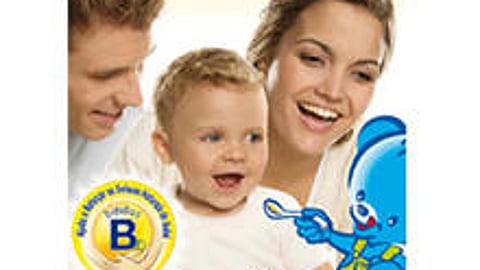

Nestlé, the world’s largest consumer goods company, adds sugar and honey to infant milk and cereal products sold in many poorer countries. This is contrary to international guidelines aimed at preventing obesity and chronic diseases, The Guardian reports citing a study.
Tests on Cerelac products sold in India showed, on average, more than 2.7g of added sugar for every serving, the report said.
Campaigners from Public Eye, a Swiss investigative organisation, sent samples of the Swiss multinational’s baby-food products sold in Asia, Africa and Latin America to a Belgian laboratory for testing.
The results, and examination of product packaging, revealed added sugar in the form of sucrose or honey in samples of Nido, a follow-up milk formula brand intended for use for infants aged one and above, and Cerelac, a cereal aimed at children aged between six months and two years, The Guardian said.
In Nestlé’s main European markets, including the UK, there is no added sugar in formulas for young children. While some cereals aimed at older toddlers contain added sugar, there is none in products targeted at babies between six months and one year.
Laurent Gaberell, Public Eye’s agriculture and nutrition expert, said: “Nestlé must put an end to these dangerous double standards and stop adding sugar in all products for children under three years old, in every part of the world.”
In its report, written in collaboration with the International Baby Food Action Network, Public Eye said data from Euromonitor International, a market-research company, revealed global retail sales of above $1.2bn (£960m) for Cerelac. The highest figures are in low- and middle-income countries, with 40% of sales just in Brazil and India.
The Guardian cited Dr Nigel Rollins, a medical officer at the WHO, as saying that the findings represented “a double standard […] that can’t be justified.”
However, a Nestlé spokesperson was quoted as saying in the report: “We believe in the nutritional quality of our products for early childhood and prioritise using high-quality ingredients adapted to the growth and development of children.”
She said that within the “highly regulated” category of baby food, Nestlé always complied “with local regulations or international standards, including labelling requirements and thresholds on carbohydrate content that encompasses sugars” and declared total sugars in its products, including those coming from honey.
Variations in recipes depended on factors including regulation and availability of local ingredients, she said.
"Over the past 5 years, Nestlé India has reduced added sugars by up to 30%, depending on the variant, in our infant cereals portfolio (milk cereal-based complementary food). We regularly review our portfolio and continue to innovate and reformulate our products to further reduce the level of added sugars without compromising on quality, safety and taste,” she said.